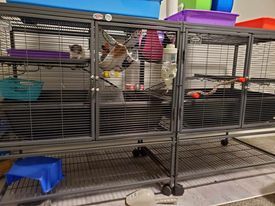Bonding With Your Pet Rats In 5 Easy Steps
This post contains affiliate links and I will be compensated if you make a purchase after clicking on my links.
Bonding With Your Pet Rats In 5 Easy Steps
Pet rats are known for their intelligence, sociability, and affectionate nature. They crave companionship and can form strong bonds with their human caretakers. However, like any relationship, building trust and bonding with your pet rats requires time, patience, and understanding. This guide provides five easy steps to help you nurture a strong, mutual bond with your pet rats, enriching both their lives and yours.
Step 1: Get to Know Their Personalities
Rats are curious and intelligent animals who can make great companions for people of all ages. To bond with your rats, it pays off to get to know their individual personalities. No two rats are the same!
Try interacting with them in different ways by offering food rewards, teaching them tricks, and providing plenty of enrichment to keep them entertained.
Additionally, you can take some time to observe how they interact with each other and their surroundings. Knowing your rats’ personalities will help you develop a stronger bond with them by knowing how to bond with them on their level.
An important note to make is not every rat likes to be handled, and that's okay! Social rats may love getting pets and kisses, where you can hardly pat the top of your skittish rat's head before she takes off!
When petting rats that are new to you, keep an eye on their body language to make sure they are comfortable with the physical contact.
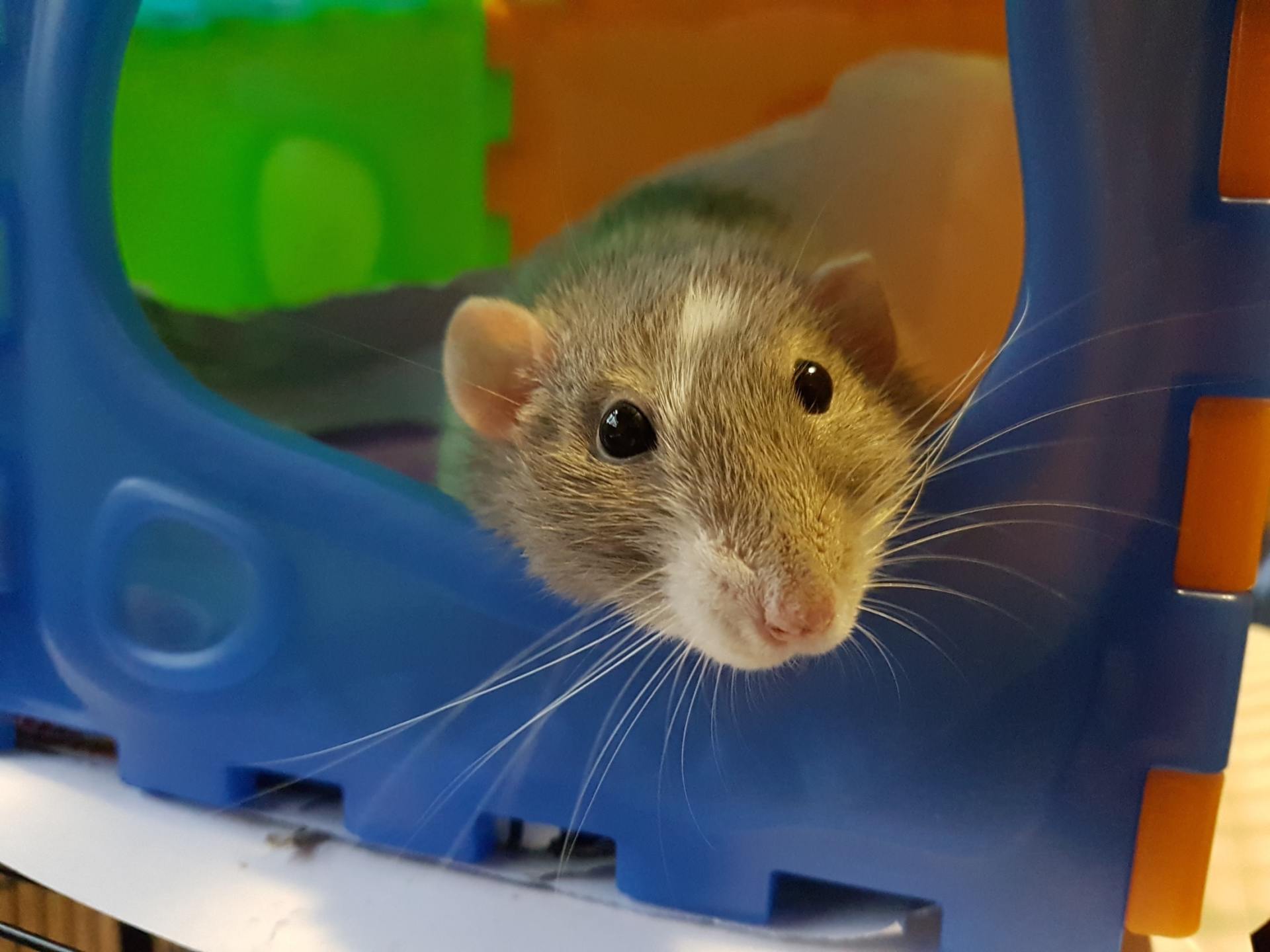
Step 2: Create A Safe Environment
Creating a safe environment for your rats is key in building trust and forming lasting relationships with them. If they are constantly stressed bonding with them will be almost impossible. A safe environment for your rats includes places they can hide away and feel secure, access to food and water, and companions of their own kind.
Make sure to provide a cage with plenty of space and comfortable bedding, as well as a safe area for them to explore, commonly known as a "free-roam area," outside their enclosures.
Rats need friends to feel safe! Your rat will not bond with you better if they are alone, neither will another rat "steal" your rat's affection from you. On the contrary, having at least one cage mate will help your rats feel more secure and better able to play and bond with you.
Rats are nesters, so providing them with a substrate bedding is a good idea, and will help keep them entertained and give them something to "work on" while you are asleep, as they are crepuscular!
Place the cage in an area with minimal disturbances, such as a quiet room away from other pets or small children.
If you have cats or dogs, they can smell them, and are likely afraid of being eaten by them. By not allowing other animals like cats and dogs access to the rats' cage, you are proctecting your small pets physically and mentally, and they will feel much more comfortable.
Keep a consistent daily routine - feed them and provide basic care at the same time every day. Time your bonding to be at the same time every day, this will not only help with stress, it will help your rats learn your schedule!
Additionally, it’s important to keep your rats’ environment clean by doing a thorough cleaning of the cage regularly and providing fresh food and fresh water daily. While rats tend to be very good at hiding illnesses, feeling sick or unwell will cause them to feel stressed.
Keep an eye out for uneaten food - if your rats are too stressed to eat, bonding with a human is the last thing on their mind. You will want to find the cause of the stress and alleviate it. Measuring your rats' food is the best way to keep track of this.
Step 3: Spend Quality Time Together
Once your rats begin to feel comfortable in their environment, begin spending quality time together. Since at this point you've already gotten to know your rats' individual personalities, you should know what quality time looks like for each type of rat:
The Social Rat:
Probably the easiest type of pet rat to bond with, the social rat will enjoy spending time with you playing, cuddling, and learning new tricks. They may even try to follow you around the house!
As you bond more with this type of rat, you will notice they will meet you at the cage door, especially if you have developed a routine with them.
My social rat Buttons learned when I took my lunch everyday, and was always in the same spot waiting for me!
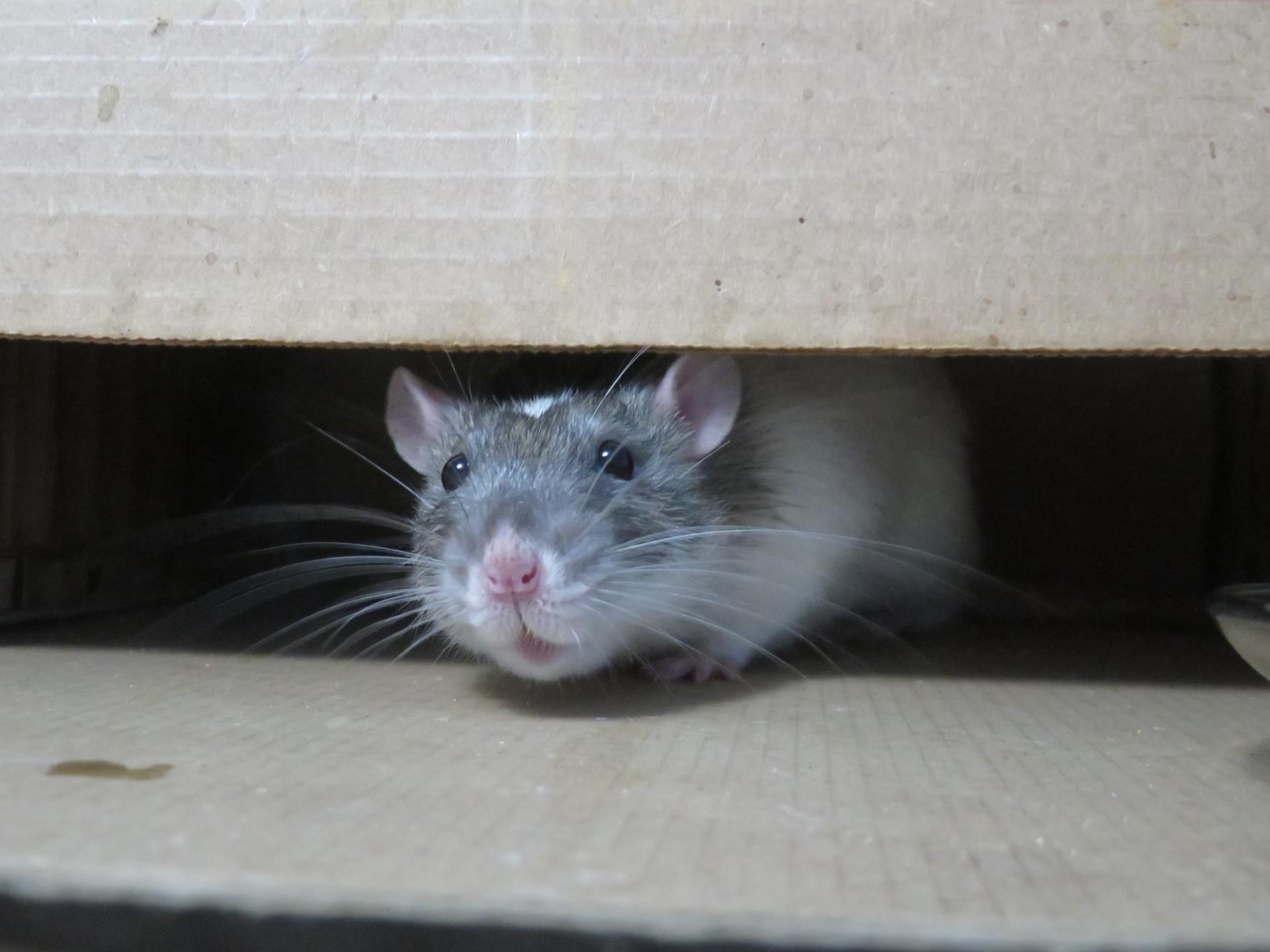
The Independent Rat:
The independent rat will take longer to warm up to you but will eventually come out of their shell when they are comfortable.
While they may never enjoy cuddling with you, you can still show them love by providing enrichment activities such as interactive toys and a safe free-roam space where they can explore and get used to their surroundings with minimal disturbances.
With my independent rats, I found they didn't typically want to play, but if I were to sit on the floor of the free-roam area with a treat in my hand and just talk to them they grew more comfortable with my voice and presence and would eventually come over to get the treat.
The Skittish Rat:
The skittish rat will need extra time to trust you, and is a bit harder to bond with, but this doesn't mean that they don't need quality time with you! Spend time observing them from a distance in their cage or free-roam area, until they become more comfortable with your presence.
Even if they don't come up to you, simply being in the same room with your rats can help them become more used to your scent and slowly warm up to you. Make sure to handle them calmly and with care, as this will help them understand that you’re safe and they can trust you.
Sudden, aggressive movements and loud noises will only make the skittish rat more skittish, so resist the urge to grab them!
When taking them out of the cage, a good idea is to use something like a bonding bag rather than grabbing them with your hands. They may shy away from direct human interaction at first, and this circumvents that step.
If they are still nervous of the bonding bag, put one of the other rats in the bonding bag first or leave the bonding bag in with some old bedding for a while so it smells familiar.
You may notice your skittish rat won't accept treats from you - don't worry! This is perfectly natural if they are on high alert, as their first priority is to make sure they are not in danger. My skittish rat Jinx took almost two months to accept a treat from my hand!
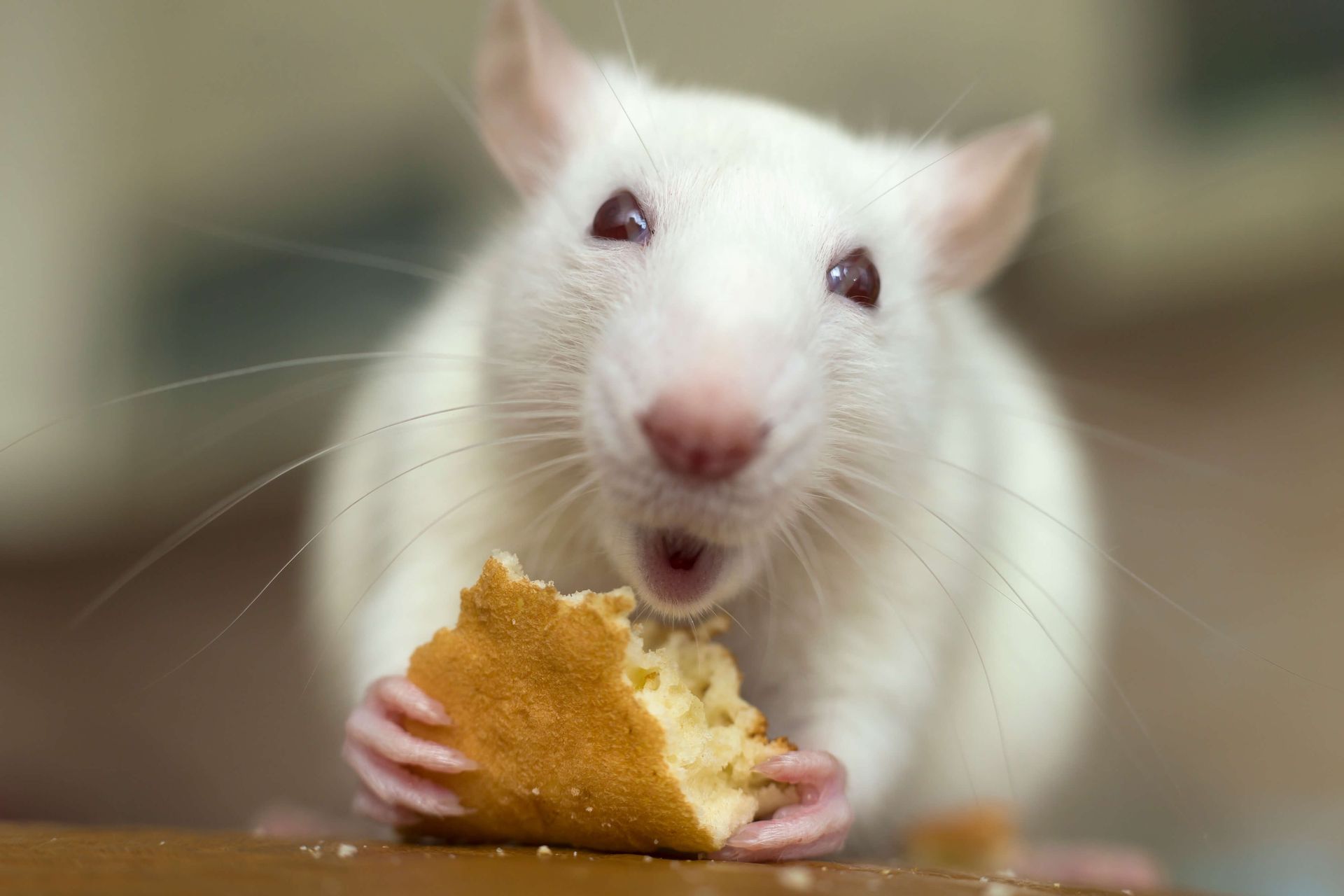
The Food Motivated Rat:
The food lover rat will bond with you if you give them tasty treats! Most rats love receiving treats, so show your rats affection by offering healthy snacks, and they’ll learn to associate your presence with something positive.
When feeding new rats, be careful with hand feeding, especially if they have not been socialized prior. Test with something like sunflower seeds, which can be given with little danger of being bit.
Once your rats are comfortable taking food from your hand, some rats may be able to take food from your fingers, like yoghurt or baby food. I like to start this process with a spoon, so if they are too eager they bite the spoon rather than my finger! Once they consistently lick the food off the spoon, then I start feeding from my fingers.
Food loving rats that are also social are the most fun and easy to train! Use healthy treats to encourage them to bond with you by learning all sorts of new tricks!
Step 4: Have Fun And Enjoy The Bonding Process
Bonding with your pet rats can be a rewarding experience for both of you. Take the time to have fun and enjoy the process, as it will help strengthen the bond between you and your rats.
It can be easy to get discouraged when days and sometimes even weeks go by with seemingly no progress, especially with how little time we have with them, but know that the effort pays off! Remember, it's a marathon, not a race!
By viewing it as a journey instead of a destination, you will be able to enjoy the small moments, and look back on your time with your pet rats fondly. Don't view hiccupps in the process as failures, rather learning points.
Unlike other animals like cats and dogs, small pets like rats can be very hard to read, so enjoy getting to know your new friends little by little, even if it feels slow at times!
Step 5: Spend Time Together Every Day
Taking some time each day to bond with your pet rats is essential for fostering strong relationships between you and them. Try to set aside at least 15-30 minutes each day for some quality time with your rats, building up the time as they grow more comfortable with you.
This can be anything from playing games together, cuddling on the couch while watching television, or just taking them out of their cage for some exploration. Taking this time daily will help your rats become more comfortable around you and build trust.
If at any point it seems like your rat is not enjoying himself or seems stressed, try putting them back in the cage and trying later. Timing is key for some rats! The most important thing is your rat feels comfortable and able to form a bond with you.
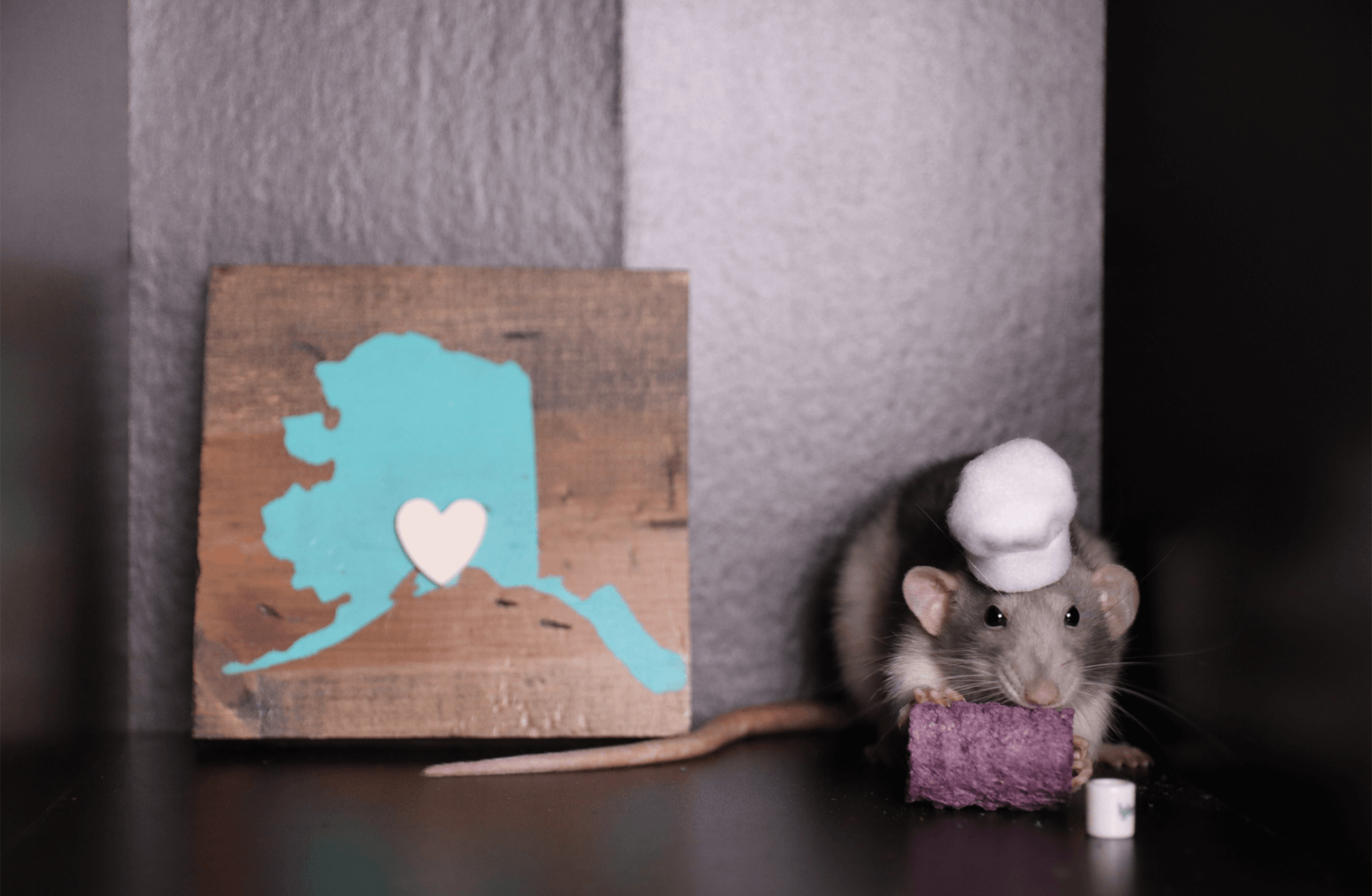
Factors That Can Affect Bonding
Not every rat is the same, and there are some factors that can affect the amount of time it takes to bond with them, as well as the quality of the bond.
Age:
If you take out all other factors, younger rats are easier to bond with simply because you have more time to bond with them. With how short their lifespans are, every day matters, and owning them from a young age means you have more time to build your bond.
However, if older rats are properly socialized before you adopt them, or if they have a more laidback personality, they are very easy to bond with, as they are already comfortable with human touch.
Tripp, one of my past boy rats I adopted as a one year old, bonded very strongly with me very quickly, and just wanted to sit on my lap during free roam time.
While they have time on their side, younger rats tend to be more skittish and hard to handle because of how small they are. This is where I like to used bonding bags/scarves or my sweatshirt to bond with them.
Getting more than one rat is a good idea when getting them young, so they have a buddy they know and are comfortable with before being introduced to new surroundings.
Sex:
Male rats tend to be more cuddly than female rats, so if you’re looking for a cuddly companion then a male rat might be the better choice.
Females are typically more independent and may not enjoy being handled as much as males do. However, they are generally more active than boy rats, and so are easier to train to do tricks.
Keep in mind these are generalizations, I have had very snuggly female rats as well as very active male rats.
Genetics:
The genetics of the rat play a huge role in how easily they will bond with their owners. Rats from a high quality breeder are much less likely to show signs of agression and fear, as a high quality breeder will be focusing on enhancing the temperament and health of their rat lines.
Getting rats from a pet store, on the other hand, is a shot in the dark. While it is possible to get a nice rat from a pet store, it's a risk. Pet stores, escpecially chain ones, typically get their rats from rodent mills or backyard breeders with no track of their genetics.
This makes it hard to impossible to know the health and temperament history of the typical rat bought from a pet store.
Prior Handling:
Rats that have had negative experiences in the past may take longer to bond, as they will need more time to trust you before feeling comfortable around humans.
In these cases, being gentle and taking things slow is key. Offer treats from a distance if they seem too nervous to take them from your hands, and give them more space until they become comfortable with you.
Some rats who have experienced a lot of abuse or trauma may never feel comfortable bonding with humans. While you may never be best buddies with this kind of rat, it's important to remember rats are social creatures and she will still need other rats to feel safe.
On the other side of the spectrum, many breeders will handle their babies from a very young age, hand taming and getting them used to human touch from day one. Hand tamed babies tend to be more open to being handled at a young age, especially if they also have the genetics for a naturally good temperament.
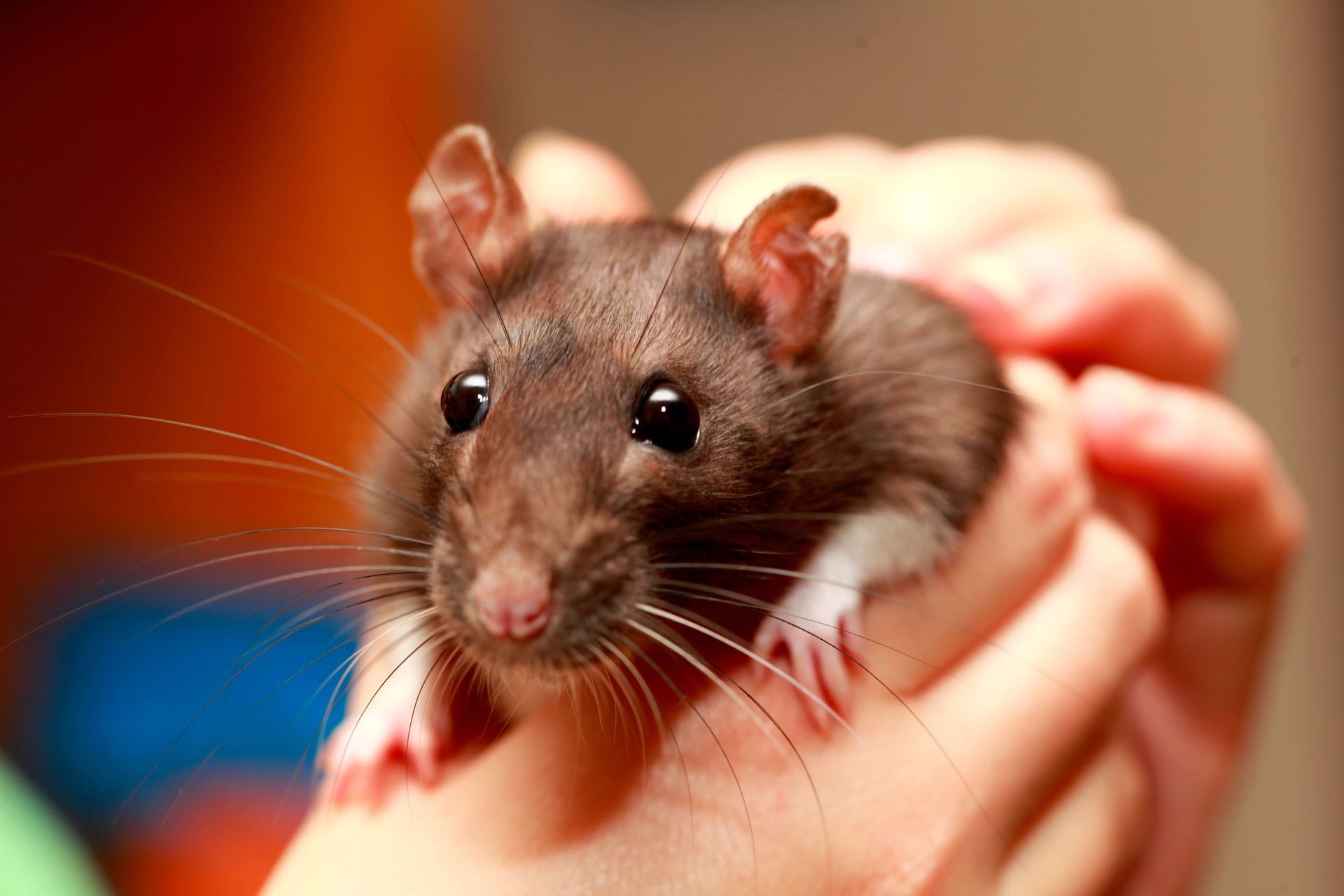
How Long Does The Bonding Process Take?
The bonding process may take anywhere from a week to several months, depending on the individual rat. Some rats can develop an attachment within a few days of being handled, while others may take longer due to skittishness or past experiences.
Be patient and remember that it is a process - don’t give up if it doesn’t happen immediately! With enough time, patience, and understanding, you’re sure to see progress.
Taking the time to understand their personalities and getting to know them on an individual level is the key to forming strong relationships.
Remember that not every rat is the same, and the way they bond and show their love for you will differ from rat to rat.
Get To Bonding!
Bonding with your pet rats doesn’t have to be a difficult process - all it takes is patience, understanding, and some quality time. Whether it’s spending time with your hands open in their cage letting them smell you or taking them on adventures outside the cage, there are plenty of ways to build strong relationships with your pet rats.
Have a heartwarming bonding story with one of your rats? Reach out to me, I'd love to hear it!
